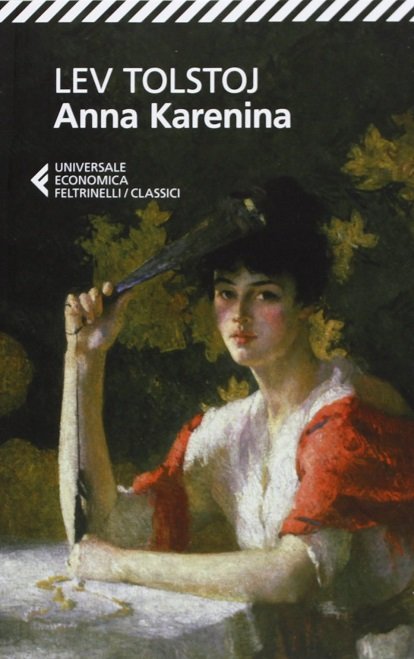Anna Karenina is an extraordinary woman - exceptional not only in terms of external but also of inner beauty. At the beginning of the novel, the author portrays her as a woman with a reputation for a good mother and husband. But in Karenini's family, she is only seemingly happy or rather silent, obedient. Anna yearns for true family happiness - something Karenin can not offer her. That's why her meeting with Vronsky destroys her husband's faithfulness very quickly to give her a sense of what it means to love real, "free and courageous." Too soon, however, Anna's love turns into love-suffering, a love-grief that sends her under the wheels of the train. And this is a logical consequence of her position as a woman who leaves her home, her child, and her husband.
It is no accident that the author emphasizes that Anna likes to foolishly two creatures who repulse each other - Vronsky and Sieroya. "I can not join them," she says to Dolly, "and that's what I need. And yet it will end ... You do not judge me for anything ... I do not despise. I'm just unhappy. "Anna is unhappy with the author because she neglects her feelings of mother and succumbs to the endeavor of her personal happiness. And according to the laws of human nature and morality this is punished! Anna is also punished because she sacrifices her child's happiness for her egoistic happiness. Anna's tragedy is also reinforced by the fact that she does not live with reason but with her heart. Reason would find reason to justify it, but the heart - never! It tells her that her feelings about Vronsky are "something terrible," something unbearable! Hence, her sense of disaster, tragic doom, which is increasing every day.
Even abroad - far from the worldly talk, Anna does not find peace of mind. Although Tolstoy condemns Anna's adultery, she deeply sympathizes with her. He seeks an occasion to bring the mother mother into it. Not one of the most moving and heartbreaking scenes in the novel is Anna's visit to the little Sergeant. In this scene, Tolstoy painted the scene between the mother and the son in a very detailed manner and the mutual feelings that she provoked in them. In front of us is revealed the deeply tragic image of the mother, which is separated from her child. Tolstoy seems to be asking again who she loves her Anna-Son or Vronsky, without, of course, answering. But it is not only the mental divide that tortures and forces Anna to suicide. In this respect,the hypocritical and cruelly secular society, which can not accept Anna's strong, sincere and open love, actively promotes her, and therefore isolates her.

Excellent portray of Ana's mental and emotional state.
verry good story weldone good work dude.